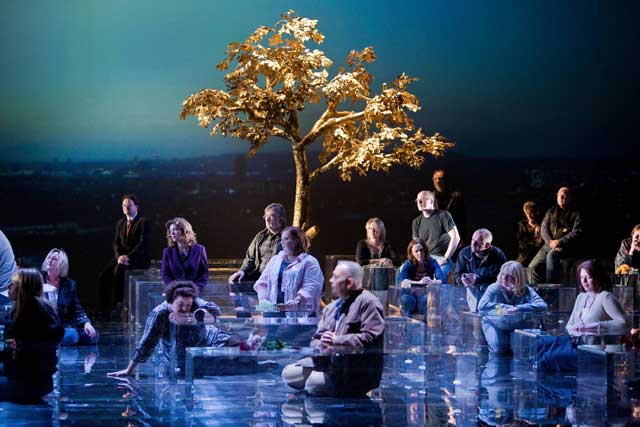Boyd Tonkin: Touches of spice at the seasonal feast
The Week In Books

How do you make an old warhorse kick up its heels and canter like a pony? That challenge arrives every Christmas, as tastes slip back into traditional grooves. But creative re-invigoration need not stop with postmodern tree baubles. Who would have thought that the festive number of the Radio Times – with Santa and Daleks duly enlisted on its retro cover – could open to reveal the Poet Laureate's spikily satirical take on "The Twelve Days of Christmas"?
Some of Carol Ann Duffy's variations thrive better than others: the "buzzard on a branch" in Afghanistan supplanting the partridge as a soldier dreams of "the grins of my kids", or the anti-banker squib with a special kick for "Too big tae fail" RBS: "We paid the bluddy pipers/ But we dinnae call the tune". Overall, though, her merry contemporary dance around a hoary theme allows a wide audiencee to get to know the sheer versatility, and high-spirited virtuosity, of our new national poet.
Never quite fixed in words or music, favourite carols have always been re-written and re-set (Mendelssohn's great tune for "Hark the Herald Angels Sing" originally came from a cantata about the printing-press). With much-loved poetry fixed firmly in the canon, modern renovators face a tougher call.
Which makes their occasional success all the sweeter. At the Norwegian Christmas concert at St Martin-in-the-Fields this month, the pianist, composer and novelist Ketil Bjornstad – accompanied by singer Anneli Drecker – played his suite Grace: a setting for voice and piano of poems, and prose from the sermons, by John Donne. The pair worked fresh magic with familiar lyrics from the Songs and Sonnets – such as "The Bait", "The Canonisation" and "The Anniversary" – and proved that a Norwegian jazz-classical fusion maestro could sustain in style the tradition of Donne settings that began with his contemporaries Dowland and Gibbons in the 1590s. A recording of Grace is available, and Donne fans with open ears and minds would love it.
A few doors away at the Coliseum, the ENO company was taking the most venerable festive warhorse of the lot over fences far higher than it often has to jump. In the English Protestant musical tradition, words have to some degree always held the reins. Handel well understood that hierarchy when, in 1741, he converted morsels of the Bible and Prayer Book - woven together by Charles Jennens - into Messiah.
Deborah Warner's dramatisation of Messiah has had a good roughing-up by the classical music police. I duly defer to their expertise. But, for this rank amateur, several of her coups de théâtre – from the emerging jigsaw backdrop of babies' faces behind "For unto us a child is born" and the speeded-up film of consumer frenzy in "All we, like sheep have gone astray" to the NHS hospital-bed rendition of "I know that my redeemer liveth" – helped bring music and meaning together with a rare, exhilarating power. Frankly, I don't know how bad a Messiah would have to be for me to pass dry-eyed through "He was despisèd". Here, I hadn't the faintest chance of finding out as the mezzo – Catherine Wyn-Rogers – was fabulous.
Separated by centuries, Handel and Bjornstad both brought a reviving outsider's eye – and ear – to venerated English texts, sacred and secular. At any season, we need more gifts of that sort. Meanwhile, the ENO programme for Messiah offers a mini-anthology of paintings and poetry, include a brace of pieces each by Donne and Duffy. It quotes, inevitably but rightly, the latter's "Prayer", a poem that somehow channels and revivifies the spirit of Philip Larkin as it imagines a new winter liturgy for faithless modern hearts: "Darkness outside. Inside, the radio's prayer - / Rockall. Malin. Dogger. Finisterre."
Whatever the next decade brings, the prospect of Carol Ann Duffy on hand to make tradition frisk like a colt should brighten any horizon. Her elevation really was one of the best things to happen in this sombre year.
P.S.Ever since the aftermath of 9/11, when Tony Blair announced that the "rules had changed", New Labour has sunk ever deeper into an authoritarian mentality. It has sought to ride roughshod over freedoms of all kinds, from the profound to the piffling. The ability of authors to go and talk to schoolchildren without prior criminal-records vetting might seem to lie towards the trivial end of that scale. But here, at least, a fightback has seen reason prevail. Schools secretary Ed Balls has revised the detested Vetting and Barring Scheme to exempt occasional visitors, such as writers, from draconian controls that would do nothing to protect children. A result for campaigners such as Philip Pullman, Michael Morpurgo and Anne Fine, and proof that respected children's authors can parley their position into real political muscle.
b.tonkin@independent.co.uk
Subscribe to Independent Premium to bookmark this article
Want to bookmark your favourite articles and stories to read or reference later? Start your Independent Premium subscription today.

Join our commenting forum
Join thought-provoking conversations, follow other Independent readers and see their replies